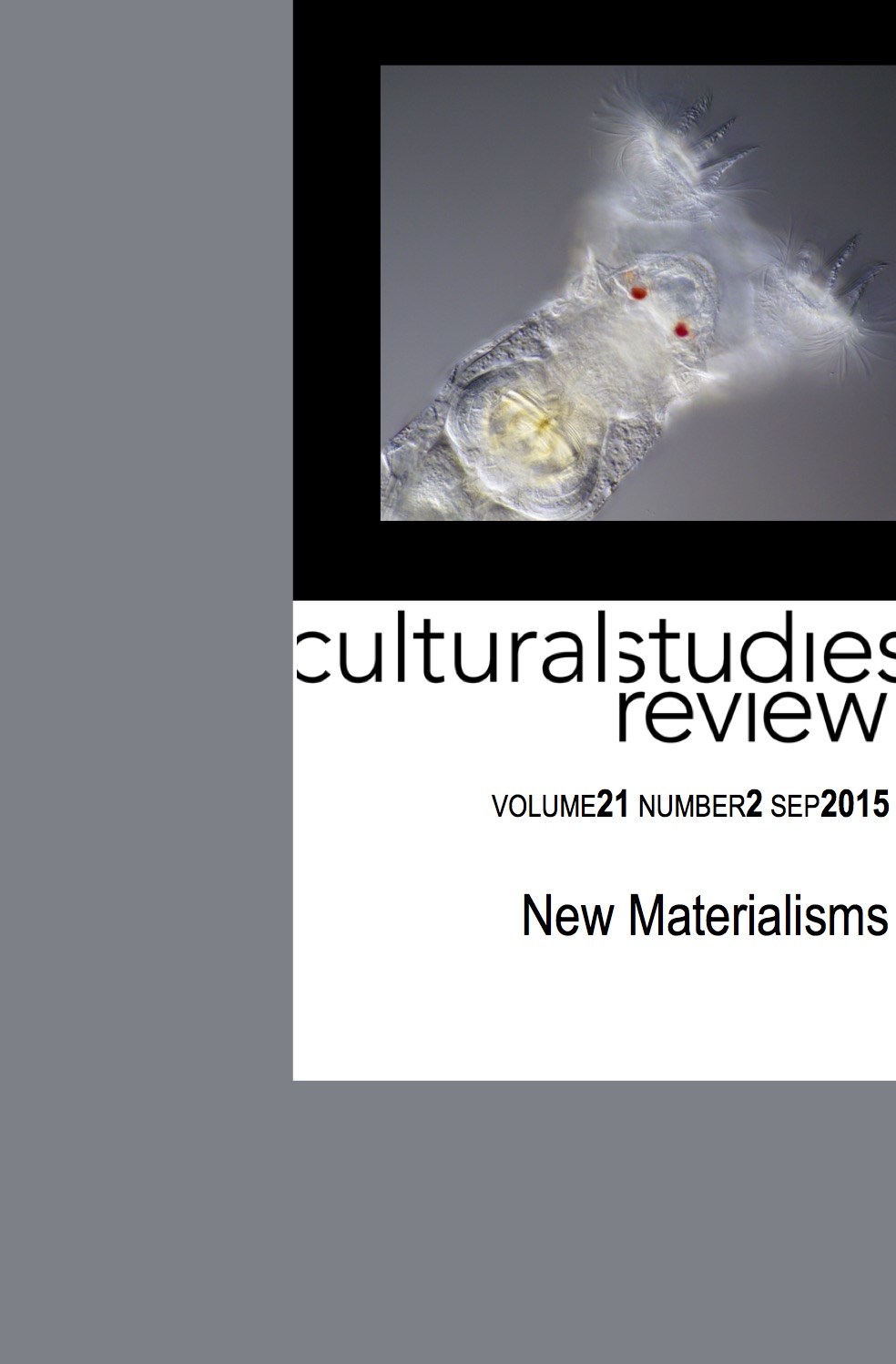Materiality, Language and the Production of Knowledge: Art, Subjectivity and Indigenous Ontology
Main Article Content
Abstract
Since all theories of knowing deal with the being of subjects, objects, instruments and environments, they can be viewed as onto-epistemological. This chapter examines key ideas that emerge from the work of Julia Kristeva – 'the speaking subject', 'materiality of language' and 'heterogeneity' – to demonstrate how ontology and epistemology are inextricably entwined in knowledge production. Kristeva also affirms both the agency of matter and the dimension of human/subjective agency implicated in cultural production. This is contrasted with Gilles Deleuze and Felix Guattari’s account creative practice. The article also draws on the artistic work of researcher-practitioner Brian Martin, and his account of the relationship between Indigenous Australian art and culture to demonstrate that in an Indigenous world view, the real, the immaterial, the imaginary and the representational occur concurrently.
Article Details
Section
Authors who publish with this journal agree to the following terms:
a) Authors retain copyright and grant the journal right of first publication with the work simultaneously licensed undera Creative Commons Attribution License that allows others to share and adapt the work with an acknowledgement of the work's authorship and initial publication in this journal.
b) Authors are able to enter into separate, additional contractual arrangements for the non-exclusive distribution of the journal's published version of the work (e.g., post it to an institutional repository or publish it in a book), with an acknowledgement of its initial publication in this journal.
c) Authors are permitted and encouraged to post their work online (e.g., in institutional repositories or on their website) prior to and during the submission process, as it can lead to productive exchanges, as well as earlier and greater citation of published work (See The Open Access Citation Advantage Service). Where authors include such a work in an institutional repository or on their website (ie. a copy of a work which has been published in a UTS ePRESS journal, or a pre-print or post-print version of that work), we request that they include a statement that acknowledges the UTS ePRESS publication including the name of the journal, the volume number and a web-link to the journal item.
d) Authors should be aware that the Creative Commons Attribution (CC-BY) License permits readers to share (copy and redistribute the work in any medium or format) and adapt (remix, transform, and build upon the work) for any purpose, even commercially, provided they also give appropriate credit to the work, provide a link to the license, and indicate if changes were made. They may do these things in any reasonable manner, but not in any way that suggests you or your publisher endorses their use.
